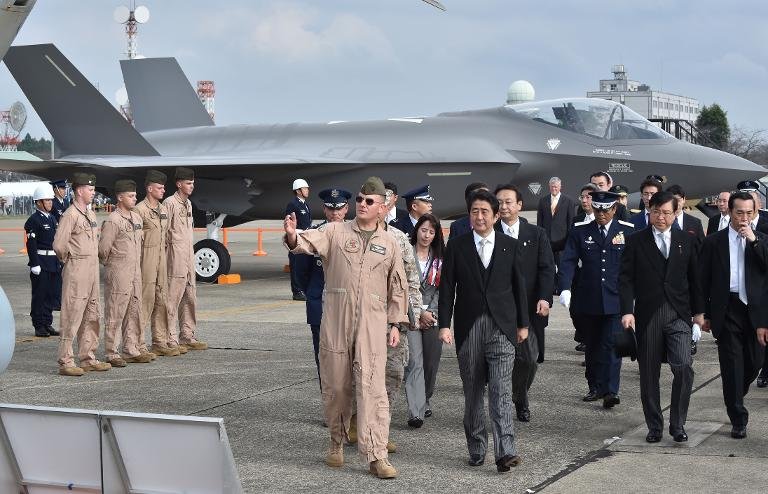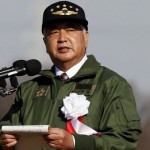Tokyo (AFP) – Japan approved its largest-ever defence budget for the next fiscal year on Wednesday, as hawkish Prime Minister Shinzo Abe looks to strengthen surveillance of territorial waters in the face of a continuing spat with China.
For the year to March 2016, Tokyo will spend 4.98 trillion yen ($41.97 billion), the government said, rising for the third straight year.
“This is the largest budget ever,” said a defence ministry official, adding the highest allocation previously was 4.96 trillion yen earmarked in 2002.
The trend reflects Abe’s wish to build a more active military, a push supporters say is in response to the raising of tensions with China, with which Tokyo is at odds over the ownership of islands in the East China Sea.
Japan is increasingly wary of Beijing, which is seen by several countries in the region as growing aggressive in various sovereignty claims.
But detractors point to Abe’s desire to bolster the military more generally, and to shrug off the shackles of pacifism.
The premier had wanted to alter the constitution to reduce restrictions on the armed forces, but was unable to muster sufficient public support, and moved instead to reinterpret the relevant clause to allow the military to come to the aid of an ally under attack.
Among items on the defence ministry’s shopping list are 20 “P-1” maritime patrol aircraft, with a combined price tag of 350 billion yen.
It will also buy five V-22 “Osprey” — crossover aircraft, which have the manoeuverability of helicopters and the range of airplanes — along with six high-tech F-35A stealth fighters.
The ministry is looking to get a fleet of “Global Hawk” drones over a five-year period, and part of the purchase will come out of this budget, officials said.
The ministry is also buying 30 units of amphibious vehicles and one E-2D airborne early-warning aircraft to be assigned to protect fringe areas, including the Nansei Shoto islands which lie between the East China Sea and Pacific Ocean.

The cash will also go towards the construction of one Aegis destroyer, and fund the deployment surveillance units around the southern islands of Okinawa and Amami.
Routinely butted heads
The Abe cabinet decided in late 2013 to set aside roughly 24.7 trillion yen between 2014 and 2019 to spend on kit including drones, submarines, fighter jets and amphibious vehicles, in a strategic shift towards the south and west.
Japan and China have routinely butted heads over the ownership of the Tokyo-controlled Senkaku Islands, which Beijing claims as the Diaoyus, with official Chinese ships and aircraft regularly testing Japanese forces.
Separately, Chinese naval ships and military jets are seen increasing their activities around Japan, while an unpredictable North Korea continues its missile and nuclear programmes.
Abe and Chinese President Xi Jinping met in last November, the first face-to-face encounter since each came to power, and agreed to work towards easing tensions over the sovereignty of the islands.
On Monday, defence officials from the both sides resumed talks on building a hotline, for the first time since June 2012, in an effort to avert unexpected clashes in the East China Sea, the government said.
But conservative ideologue Abe has also travelled abroad tirelessly to reinforce ties with foreign leaders, particularly those in Southeast Asia, in a bid to counter China’s efforts to expand its sphere of influence.
Abe has also worked to strengthen Japan’s military alliance with the United States.
The defence expenditure makes up more than five percent of Japan’s general budget for the next fiscal year, which comes in at a record-high 96.34 trillion yen, up from 95.88 trillion yen the previous year.

